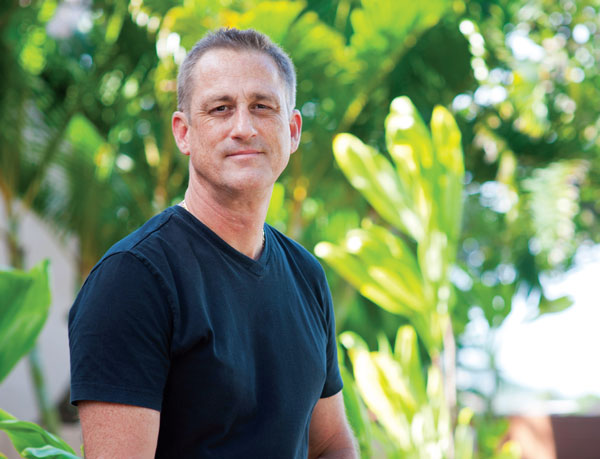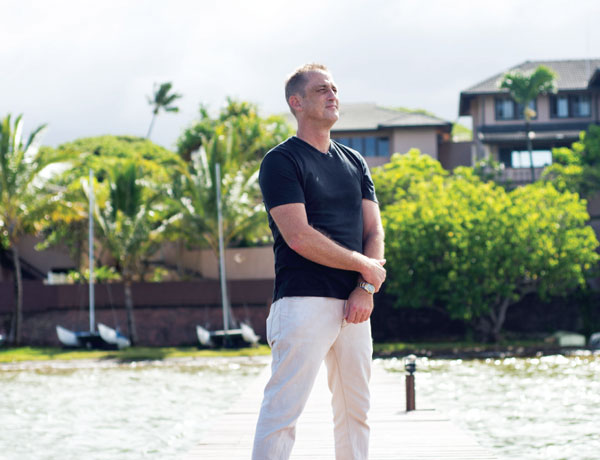ONE WAY TO TRANSFORM LIVES
Habilitat has been treating hardcore substance-abuse patients for four decades with individual treatments that take years to complete.

When no other treatment has succeeded, drug addicts are sent to Habilitat.
“In the industry, we’re considered the last house on the block,” says Jeff Nash, facility and program director since 2002. “We’re the place where you send people when all else has failed.”
Many substance-abuse programs last for six months, but the average stay at Habilitat is 24 to 30 months. That’s a big commitment, but the results are encouraging. Nash says Habilitat tracks people for five years and has a 64 percent success rate based on three criteria: staying clean and sober, holding a job or going to school, and not being re-arrested for those five years.
Add that success rate to Habilitat’s longevity – it’s been in Hawaii for 43 years – and you have one of the state’s best programs for hardcore addicts.
We’re the place where you send people when all else has failed.”
“A lot of times people from the mainland will come here, too. We have referral sources from Florida, Utah, California, Chicago and New York City. Counselors that work for other programs know about us, and when they see people struggling and not getting anywhere with short-term fixes, they will recommend Habilitat. It’s considered the highest level of care – long-term and residential.”
Working intensely with the court system, especially with judge Steven Alm, retired judge Michael Town and others, Habilitat can be an alternative to prison.
“Eighty-five percent of our population comes from the Hawaii prison system,” says Nash. “They come to us instead of prison. They get arrested for a drug offense and they petition the judge in hopes they’ll be able to come to Habilitat instead of incarceration. There’s a big trend now of trying to shift the system to getting people to services they need rather than locking them up. It costs over $100 a day per inmate in Hawaii, so the whole Judiciary works to get people into programs. It’s much less costly to the taxpayer to send them to Habilitat instead of prison.”
In fact, the state pays nothing to send a person to Habilitat, Nash says. Financing is provided by Habilitat’s own fundraising, including Christmas tree sales and its construction and home-improvement company.
We teach them that successful choices create more choices for themselves.”
“If you’re being faced with 20 years in prison or three years in Habilitat, it’s a simple matter of math. And the judges create that motivation,” Nash says.
The program’s method is called the Therapeutic Community Model. “You bring someone into awareness of their thought patterns and help them change those patterns,” says Nash. “You help them change their value systems, help them set up new morals and principles through changing their thought process.”
The first nine months involves intensive therapy. After that, clients are usually ready for vocational training that includes eight-hours a day of on-the-job learning, usually as part of Habilitat’s construction company.

“Most have spent nine months on our facility, sequestered here, so by the time they can go off property and work, they’re excited,” says Nash. “They’re looking forward to a future.”
The keys to Habilitat’s success are the longevity of its treatment and the supportive community it creates, Nash says.
“One of the things we notice is you take away the drugs and they’re not actually the problem. They’re the symptom of the problem. Take away the drug use and you still have a person who has a lot of problems – lack of social skills, lack of vocational skills, lack of emotional security. They don’t know how to deal with emotions. No one has taught them how.”
Patients also learn that they have options. “We teach them that successful choices create more choices for themselves,” Nash says. “We want them to understand there are choices for everything. We take the approach that they are in control of their lives and that addiction is not a disease, but a choice or a series of choices that led to the demise of one’s life.”
Nash is proud that Habilitat employs no psychiatrists and uses no psychotropic drugs or anti-depressants.
“We have people come to us on all kinds of heavy drugs and we get them off. Within a month they’re not depressed; they’re smiling, happy and have a purpose and a new direction and they understand they don’t really need that stuff. We tell them, ‘Your depression is now over.’ We keep them busy.
“We’re not about feeling sorry for ourselves. We’re about choosing life.”